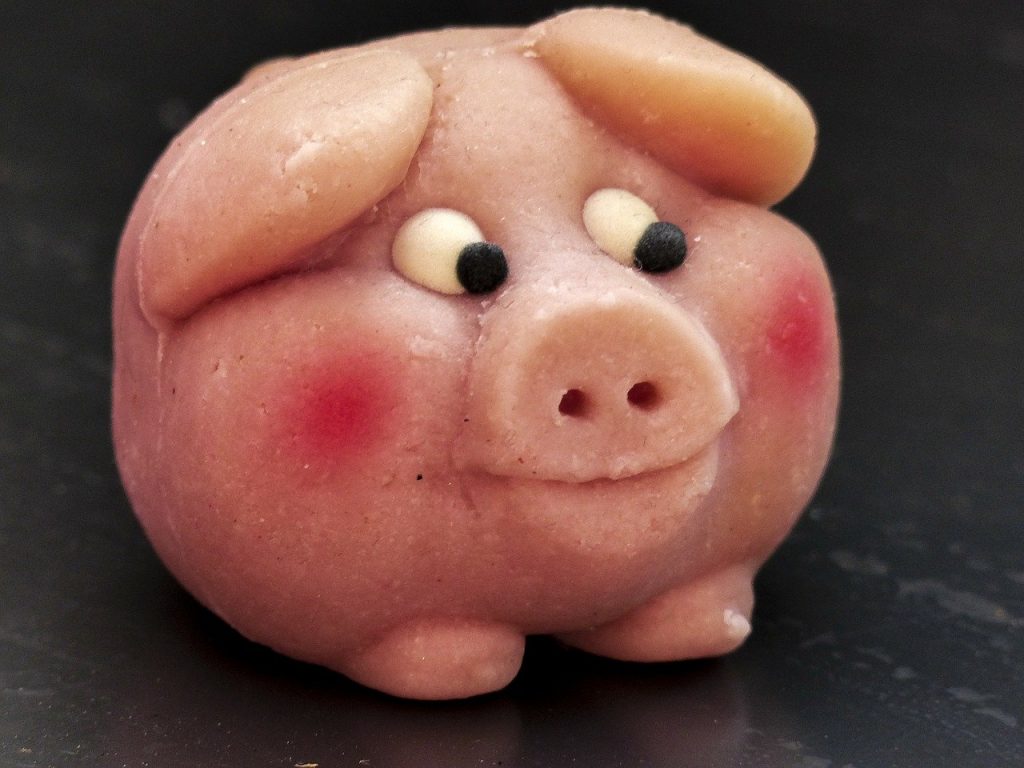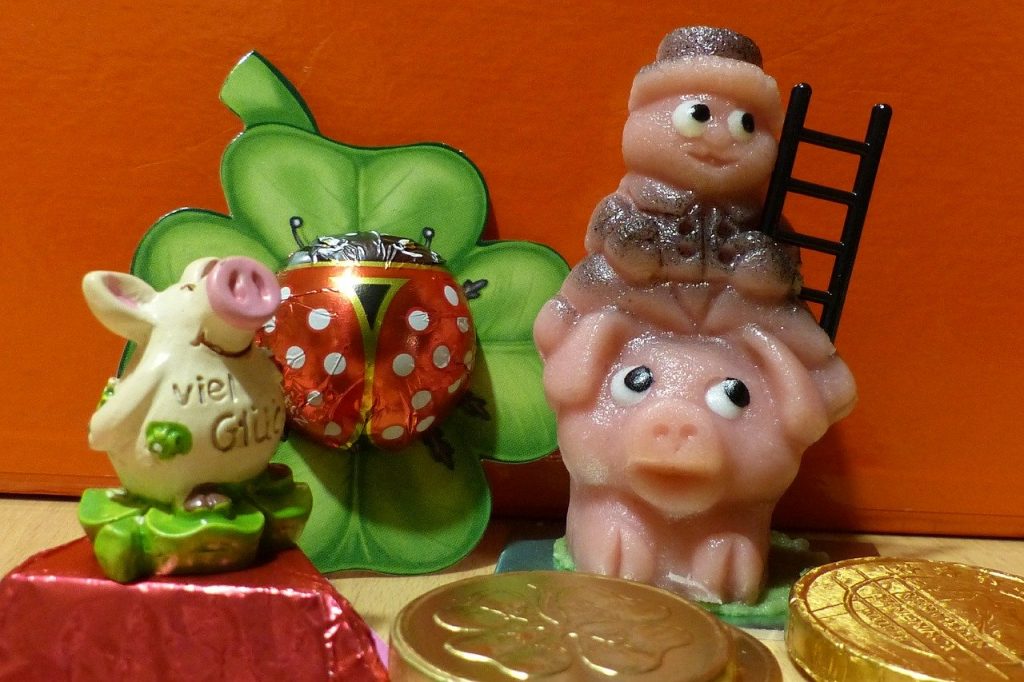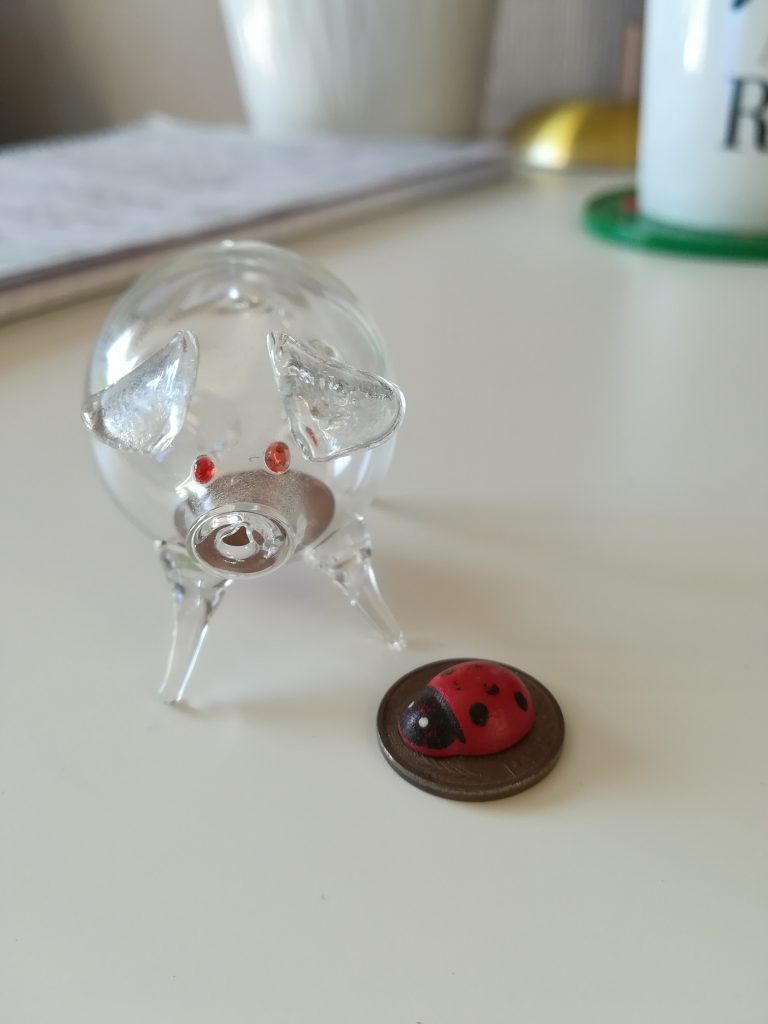German Lucky Charms Posted by Constanze on Mar 23, 2020 in Culture, Language, Traditions
Guten Tag! I hope everybody is well. Last time on the blog I talked about the extensive use of the word Schwein (pig) in the German language.
If you read that post, you might now be wondering why the word Schwein is used in so many sayings and expressions in Germany. There are two theories, that date back to the Mittelalter (Middle Ages). One theory is that the ace in a deck of cards back then was nicknamed the Sau (swine). Of course, if you know card games then you know the ace is the highest card, so whoever drew the Sau was lucky. The other theory also dates back to the Mittelalter, when owning a pig was a sign of wealth and prosperity. Because times were difficult, you were considered to have a lot of Glück (luck) if you owned a pig.
The pig is still considered a lucky charm in Germany today. Das Glücksschwein is a miniature marzipan pig that is traditionally given as a good luck gift at Neujahr (New Year) in Germany. But it can also be given in other forms, such as little wooden or glass figurines.
Other Glücksbringer (lucky charms) in Germany include der Fliegenpilz (fly agaric or ‘toadstool’ mushroom), which is so lucky it even goes by another name: der Glückspilz (‘lucky mushroom’). The same goes for der Cent (a cent), which becomes der Glückscent, and der Marienkäfer (ladybird), which becomes der Glückskäfer (‘lucky bug’).
I realised whilst writing this post that I have a Glückscent, Glückskäfer, and a little glass Glücksschwein right here in my office!
The penny inside my Glücksschwein is not a German Cent, but rather a Pfennig, because I got this glass pig around the time when Germany changed from the Deutsche Mark to the Euro. So it’s not a Glückscent in my case, but a Glückspfennig (‘lucky penny’).
Next time I will talk more about the word Glück, and clear up a common area of confusion surrounding this word.
Bis dann (until then)!

Build vocabulary, practice pronunciation, and more with Transparent Language Online. Available anytime, anywhere, on any device.






